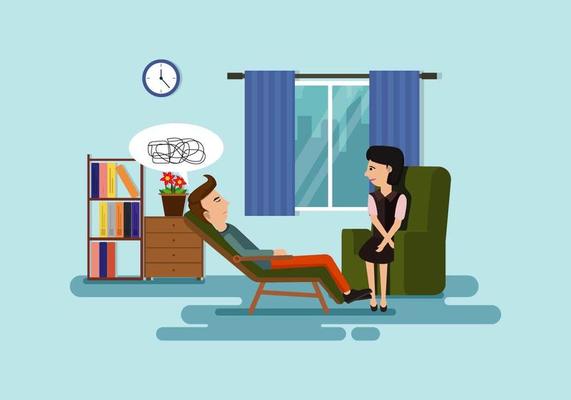Top Reasons to Consult the Best Psychologist in Delhi for Your Emotional Health and wellness
Top Reasons to Consult the Best Psychologist in Delhi for Your Emotional Health and wellness
Blog Article
Psych Treatment: A Comprehensive Overview to Methods and Results

Cognitive-Behavioral Therapy
Cognitive-Behavioral Therapy (CBT) is an extensively utilized psychotherapeutic method that concentrates on identifying and customizing useless thinking and behavior patterns. Established in the 1960s by Aaron T. Beck, CBT incorporates behavioral and cognitive concepts to resolve various mental health and wellness concerns, consisting of depression, anxiety, and stress-related disorders.
CBT is identified by its organized, ambitious nature. Therapy typically entails a joint procedure between the specialist and customer, where specific troubles are determined, and useful techniques are developed to address them. Methods such as cognitive restructuring, exposure treatment, and skill-building exercises are commonly used. Cognitive restructuring includes tough and changing negative idea patterns, while exposure treatment aims to minimize worry and anxiousness with gradual direct exposure to feared things or circumstances.
Evidence-based research study sustains the efficacy of CBT for a large array of psychological conditions - Best Psychologist in Delhi. Its focus on skill procurement and self-help strategies equips customers to continue progress separately after treatment ends. The flexibility and effectiveness of CBT have made it a cornerstone in contemporary psychotherapeutic method
Psychodynamic Strategies
Rooted in the very early concepts of Sigmund Freud, psychodynamic approaches concentrate on checking out the unconscious mind and its influence on habits and feelings. These techniques intend to discover concealed ideas and sensations that might be driving maladaptive actions and emotional distress. Central to this strategy is the principle of internal dispute, frequently coming from unsettled past experiences, especially those from youth.
Therapists using psychodynamic techniques utilize numerous essential approaches, including complimentary organization, where individuals are motivated to speak freely to reveal subconscious material, and dream analysis, which analyzes the latent web content of desires. Furthermore, the exploration of transfer and countertransference dynamics within the therapeutic partnership is critical. These communications can offer insights right into the individual's internal globe and relational patterns.
Psychodynamic therapy is generally longer-term contrasted to various other modalities, supplying a deep and detailed understanding of the person's subconscious. Research shows that it can be especially efficient for complicated mental wellness issues, such as individuality conditions and persistent anxiety. By fostering self-awareness and emotional insight, psychodynamic therapy looks for to bring subconscious material to awareness, allowing people to achieve lasting and significant change in their lives.
Humanistic Methods
Structure on the foundations laid by psychodynamic methods, humanistic strategies provide a distinctive perspective concentrated on individual possible and self-actualization. Originating in the mid-20th century, these methods focus on the inherent goodness and development possibility of individuals, highlighting an all natural view of human experience. Trick figures such as Carl Rogers and Abraham Maslow have dramatically influenced this restorative technique, which includes techniques like client-centered treatment and Gestalt therapy.
Client-centered treatment, developed by Rogers, plays an essential function in humanistic methods. It depends on the therapist offering a setting of unconditional favorable regard, empathy, and congruence. This promotes a secure room for customers to discover their feelings and experiences without judgment, helping with self-discovery and personal growth. The therapist's function is more of a facilitator than an authority, encouraging clients to harness their inner resources for recovery.
Gestalt treatment, one more crucial humanistic method, highlights present minute recognition and the assimilation of body and mind. By concentrating on the "here and now," customers get higher insight right into their present feelings and behaviors. Techniques such as role-playing and directed visualization are frequently employed to help customers obtain a deeper understanding of themselves, ultimately bring about boosted self-awareness and satisfaction.
Integrative Therapies
Integrative treatments represent a synthesis of numerous restorative strategies customized to satisfy the distinct demands of each client. This approach recognizes the complexity of human psychology and the complex nature of mental health and wellness problems. By incorporating aspects from various institutions of psychiatric therapy-- such as cognitive-behavioral therapy (CBT), psychodynamic treatment, and humanistic methods-- integrative treatments provide an even more alternative and adaptable treatment standard.
Specialists of integrative treatment evaluate each customer's details requirements, signs and symptoms, and personal background to devise a personalized therapy plan. This individualized technique improves the capacity for therapeutic success by resolving the source of psychological distress and promoting total well-being. Techniques may consist of mindfulness workouts, cognitive restructuring, and psychological processing, each chosen to target different elements of the customer's concerns.
Moreover, integrative therapies highlight the restorative connection, watching the client-therapist bond as a crucial element of efficient treatment. This relationship promotes a supportive environment where clients feel risk-free to check out and address their worries. The versatility of integrative therapies makes them appropriate for a broad range of problems, consisting of anxiety, anxiety, trauma, and social troubles, consequently boosting their applicability and efficiency in diverse clinical setups.

Determining Treatment Outcomes
Examining the effectiveness of psychiatric therapy is important for both customers and medical professionals to guarantee that the therapy is yielding the wanted results. To attain this, various techniques and devices are employed to measure therapy end results systematically. Standardized evaluation tools, such as the Beck Clinical Depression Inventory (BDI) and the Generalized Anxiety Condition 7 (GAD-7), supply measurable information on symptom seriousness and modifications helpful resources gradually.
Along with standardized tools, qualitative methods like client self-reports and scientific meetings use valuable insights into the personal experiences and viewed development of clients. On a regular basis set up evaluations, generally at the start, midpoint, and end of therapy, help in tracking the trajectory of improvement or identifying locations needing modification.
Result measurement is not restricted to symptom reduction; it likewise includes practical enhancements Recommended Reading in day-to-day live, such as much better interpersonal partnerships, raised job productivity, and boosted total health. Modern innovations in electronic health and wellness have presented mobile applications and online systems that assist in real-time tracking and feedback, better improving the evaluation process.
Inevitably, a detailed method to gauging treatment outcomes makes certain that restorative interventions are reliable, efficient, and customized to meet the specific needs of customers, thereby maximizing the overall healing experience.
Conclusion
Psychiatric therapy uses a multifaceted variety of techniques intended at dealing with details psychological wellness problems and enhancing total wellness. Cognitive-Behavioral Treatment and psychodynamic methods target dysfunctional ideas and unconscious influences, specifically. Humanistic techniques concentrate on individual development and self-actualization, while integrative treatments combine several approaches for tailored treatment plans. Reviewing therapy outcomes with standard analyses and qualitative methods makes certain an extensive understanding have a peek here of efficiency, inevitably leading customers towards enduring mental health improvements.
From the structured method of Cognitive-Behavioral Therapy (CBT) to the deep exploration of the subconscious in psychodynamic treatment, each method brings unique benefits. Its focus on skill acquisition and self-help strategies encourages clients to continue progress independently after treatment wraps up (Best Psychologist in Delhi). Key numbers such as Carl Rogers and Abraham Maslow have actually substantially influenced this therapeutic strategy, which includes methods like client-centered treatment and Gestalt therapy

Report this page